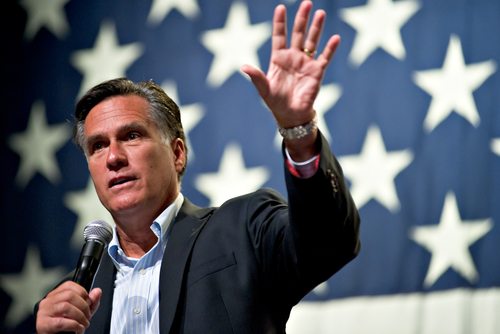
Christopher Halloran / Shutterstock.com
July 7, 2012; Source: Politico
Sign up for our free newsletters
Subscribe to NPQ's newsletters to have our top stories delivered directly to your inbox.
By signing up, you agree to our privacy policy and terms of use, and to receive messages from NPQ and our partners.
WWRD? That’s what Politico’s J. Lester Feder asks in a recent column in Politico. That is, what would Romney do? If elected president, would Mitt Romney undo the Affordable Care Act that promises, if implemented successfully, to reform health insurance? Feder lists five ways Romney could undermine the law without having it repealed, given that even if he somehow finds his way into the White House, he might face a Democratic Senate that could frustrate an effort to repeal:
- Through federal rulemaking, a President Romney could try to undermine the ability of the federal exchanges to function, which would undo one of the mainstays of the federal health insurance reform initiative.
- Feder suggests, as we have previously, that another strategy for undoing health insurance reform is to withhold funding. He writes that one strategy would be to “starve the federal exchanges” by having congressional Republicans “block any language that explicitly funds them.” This strategy could apply to the state exchanges, too. There is no specific appropriation for setting up the exchanges, so the Department of Health and Human Services (HHS) has been providing funding from a $1 billion “implementation fund.” That fund will be out of money by the end of this year, so a President Romney and his HHS secretary could choose not to provide additional implementation funding for the exchanges.
- When you buy your health insurance, exactly what is the federal government telling insurers they must cover? The answer to this question is a critical part of health care reform. Feder notes “rules that aren’t finalized can easily be tossed out or reworked.” The Obama administration hasn’t yet defined “the essential health benefit package that must be covered by health insurance plans.” Feder writes that the Obama administration might delay this rule until after November because of its political sensitivity, but that could give a potential Romney administration the opportunity to withdraw whatever is not finalized.
- Another tactic might be to emulate the Obama administration’s approach to waivers on the No Child Left Behind program. The administration has been giving many states waivers and exceptions that suggest that it is hardly standing behind the Bush program. A Romney administration could do the same thing with the Affordable Care Act, certifying state health exchanges that don’t meet the standards of the law, permitting coverage variations by insurers, and/or basically allowing states’ employers to “get away with things an Obama (HHS) secretary likely wouldn’t.”
- Feder also mentions a “do nothing” strategy, but that appears willfully obstructionist to us. A potential President Romney could perhaps “do nothing” to implement the law, telling the IRS not to enforce the individual mandate and stopping federal efforts to expand state Medicaid programs that would cover people up to 133 percent of the poverty level. But would the courts force the Romney administration to implement the law the candidate has pledged to undo?
The role of health care in the financing of the nonprofit sector is huge. Through grants and services, health care is the biggest bubble of revenues for nonprofits. The implementation fits and starts of the ACA under President Obama or a hypothetical alterative President Romney are as important as anything happening to the nonprofit sector.—Rick Cohen











